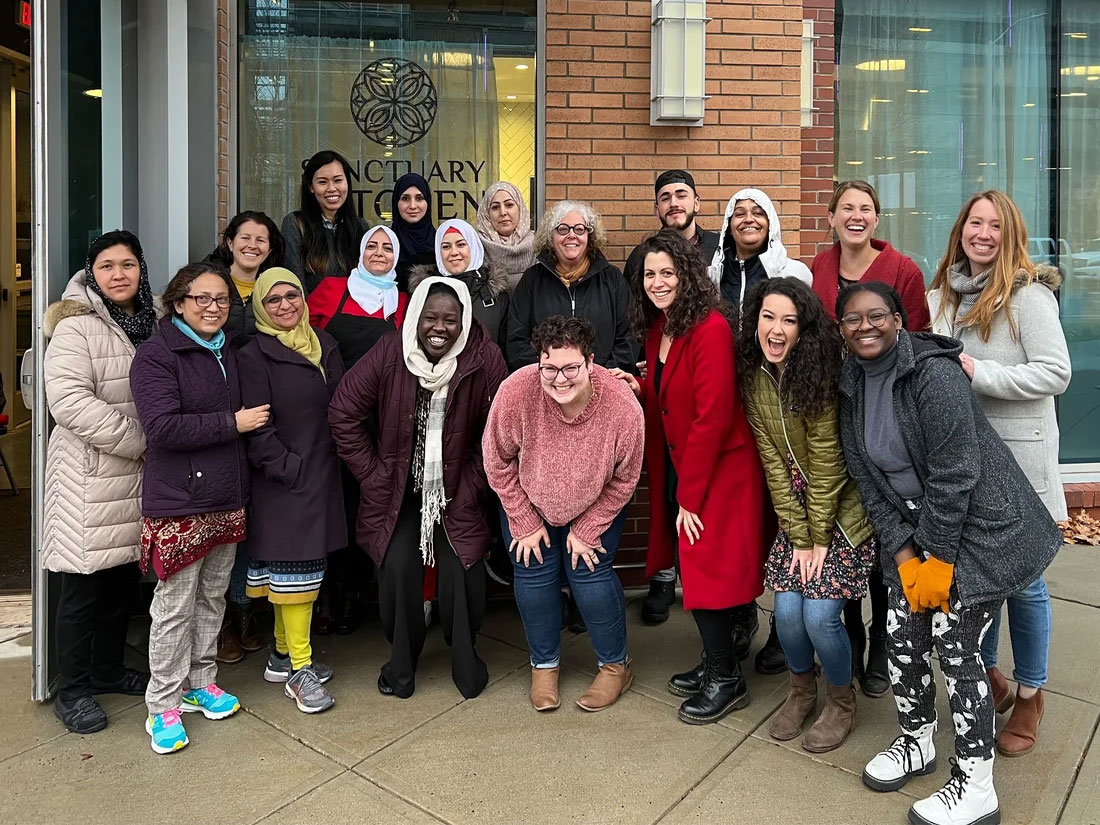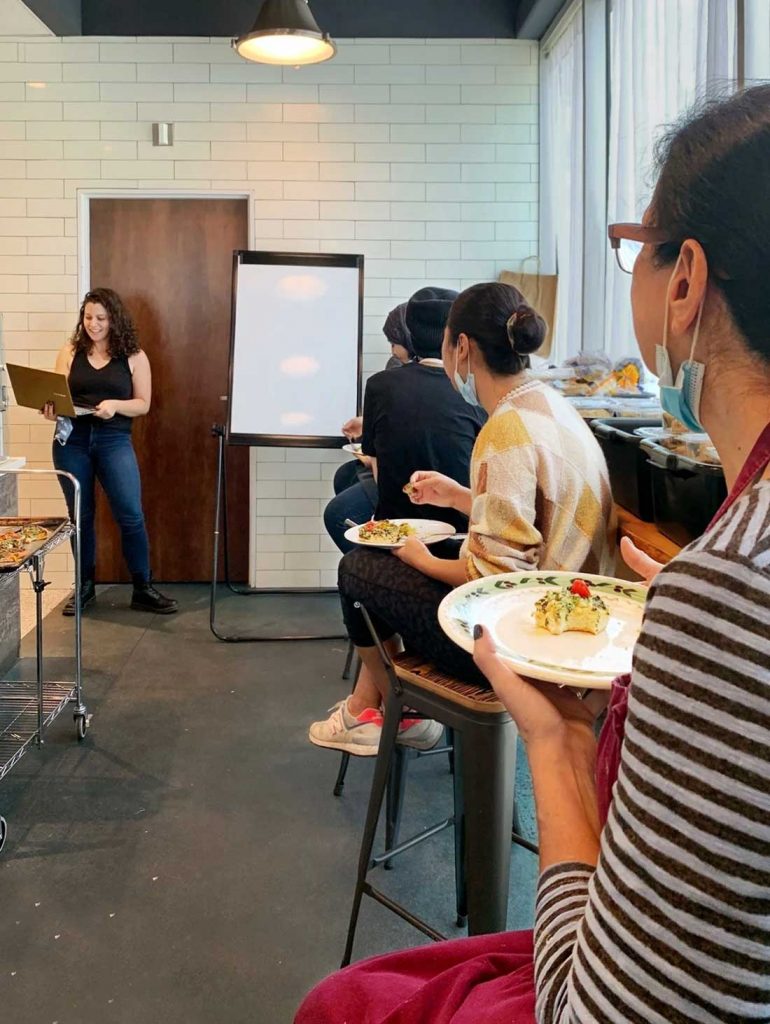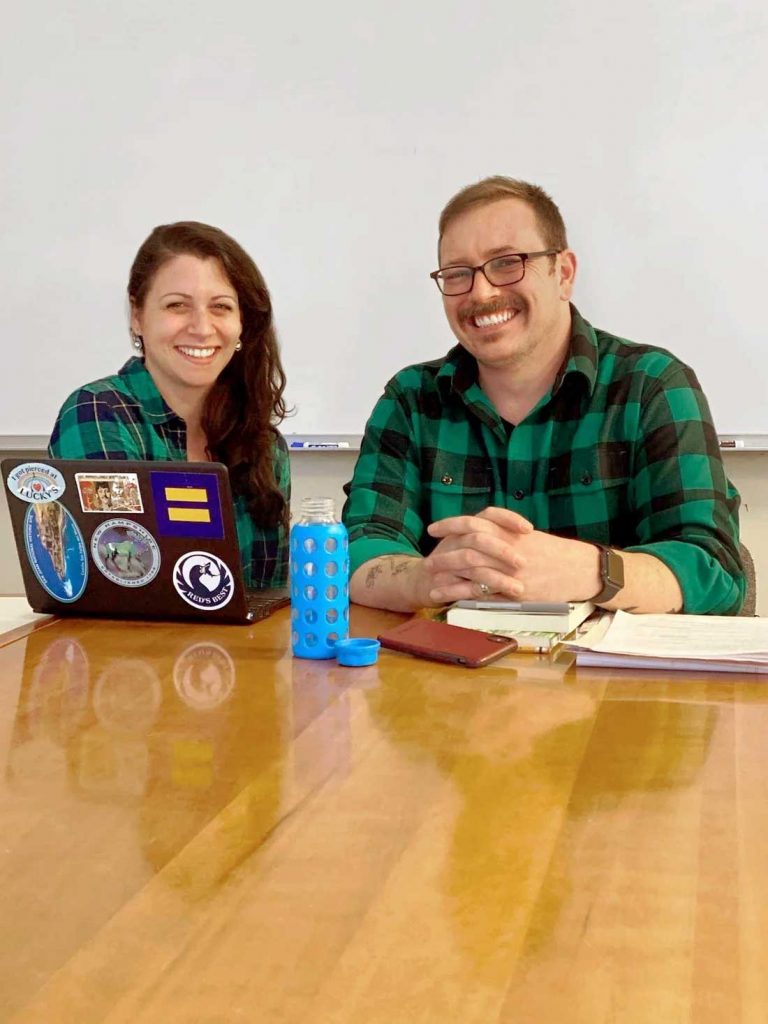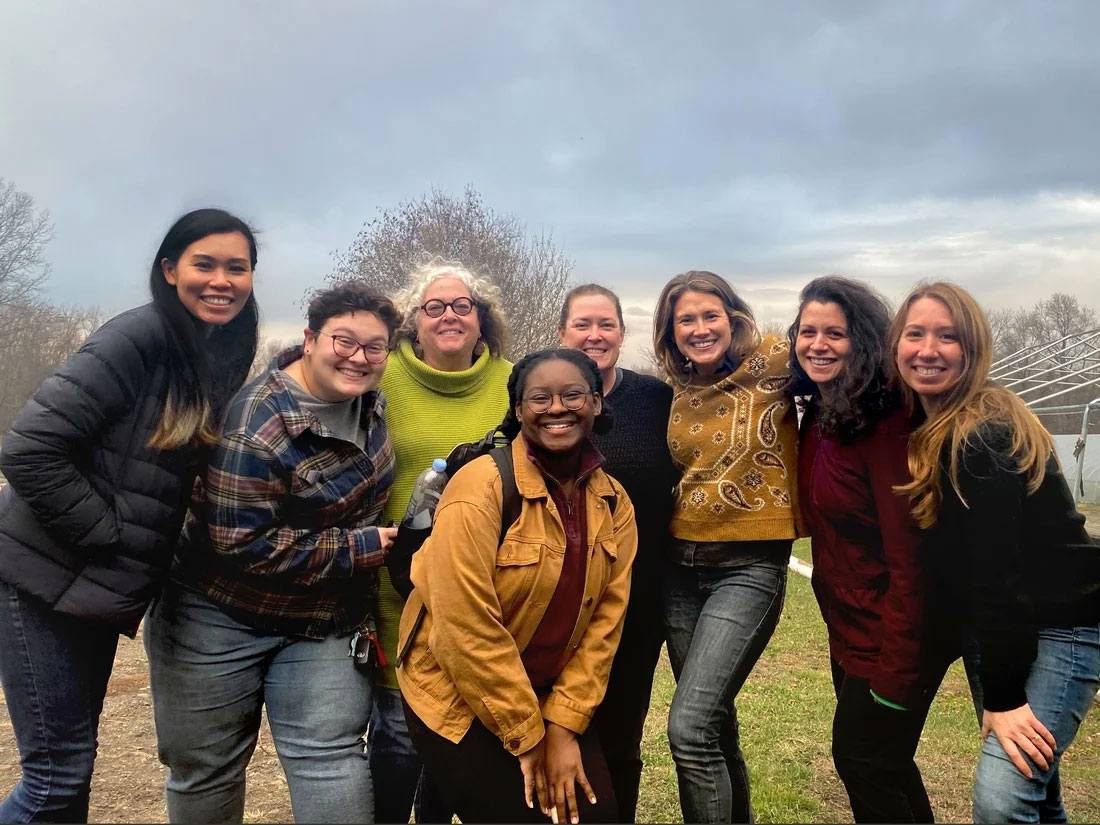
Their guiding principle, Santino explains, was that every aspect of the program be true to the goal of promoting social equity. This meant ensuring that those served by the program played a central role in shaping it, that every contributor was compensated, and that the curriculum centered the perspectives of food industry leaders from marginalized communities. The program highlighted the interconnectedness of social justice issues. “We formulated the curriculum around the injustices that overlap in the food and the prison systems, focusing on how to bring more options for healthy, culturally appropriate and affordable food into communities disproportionately affected by inequity,” they explain.
The project speaks to the essence of what drew Santino to the food studies graduate program: They sought an education that would help them work effectively at the intersection of food and social justice. And now, with a career that evolved directly from their master’s thesis, Santino leverages the insight and passion gained through years of working in the field into agency for change.

Empathy From Experience
The formative experience that set Santino on their path was the food insecurity they experienced as a youth. When Santino, who grew up just outside New Haven, Connecticut, was 11, their parents’ divorce precipitated abrupt changes that pushed Santino and their siblings and mother into poverty. And while Santino’s family gave up their car and lost their house to foreclosure, the change Santino felt most keenly was lack of food. “I grew up in an Italian American culture, and food was a central part of community. In my younger years it was always around and there was a lot of it. And then as I got older, there was significantly less.” For many years, school lunches provided their most stable and nutritious meal of the day.
Santino characterizes their middle and high school years as challenging, in part because they contended with then-undiagnosed ADHD, but they began to develop a sense of direction during their first year of community college. They took some culinary and hospitality courses and started working in restaurants. Affirmed in their interest, Santino transferred to Johnson and Wales University and earned a bachelor’s degree in culinary arts and food service management.
The education Santino received through working in the culinary and hospitality field—in a range of roles throughout college and beyond—was equally formative. While they appreciated the independence gained through work, they were increasingly troubled by aspects of the industry that conflicted with their values. Particularly disturbing, they say, was the dehumanizing work environment of some corporate establishments and the stark socioeconomic disparities between some restaurant workers and clientele.

The Perfect Mix
Santino sought opportunities to work with organizations that addressed issues at the intersection of food and social justice. Their first such position was at a women’s shelter where both the food and the culture aimed to promote health, community and a sense of dignity for all involved. They also worked at a nonprofit that provided a bakery training program for formerly incarcerated people. The emphasis on culinary arts as a means to financial security resonated with Santino, and the role provided an eye-opening education into the incarceration system. “Having candid conversations with the returning citizens and hearing their stories helped me understand how people who have contact with the prison system get completely disregarded by society,” Santino says.
Santino discovered the food studies program at Syracuse University by chance, after accompanying a friend to a career fair. They found the program deeply compelling, characterizing it as a “perfect mix of food and social science—with a little bit of public health thrown in.” Although at that point Santino had written off the possibility of graduate school, assuming it would be financially beyond reach, they applied.
During an exploratory visit to campus, Santino met food studies and nutrition professor Evan Weissman, and the positive experience confirmed their decision to enroll. “I visited in April, and it was typical Syracuse weather—65 degrees one day and snowing the next,” Santino remembers. “I was thinking, ‘I don’t know about this,’ but when Professor Weissman showed me the food study suite and I saw the different things happening there, I knew that this was exactly where I wanted to be and what I wanted to do.”
Weissman became a mentor whose own work Santino could build on, and he served as their advisor until he died unexpectedly in 2020. “I wanted to create participatory programs, centered around food, with people who are most affected by issues of income and racial inequality. The food studies program and Professor Weissman helped me put my ideas on paper and start to imagine how to execute them.”

From Capstone to Career
Among the many agencies Santino worked with to develop the educational program that served as their master’s thesis was City Seed—a nonprofit in New Haven focusing on sustainable agriculture, community and economic development. That connection led to accepting a position as manager of City Seed’s emergent food entrepreneurship program and working with early-stage entrepreneurs—many of whom are women, recent immigrants and people of color—to help them launch their food businesses.
It’s a role Santino is imminently equipped to handle. “All my life I’ve had to hustle and put out fires. Then I had the chance to study the interconnectedness of social issues in the food program. Now I’m drawing on both those experiences to support people in launching their food businesses—it’s a perfect culmination.”
A Syracuse University Story by Sarah H. Griffin originally published on June 14, 2022
